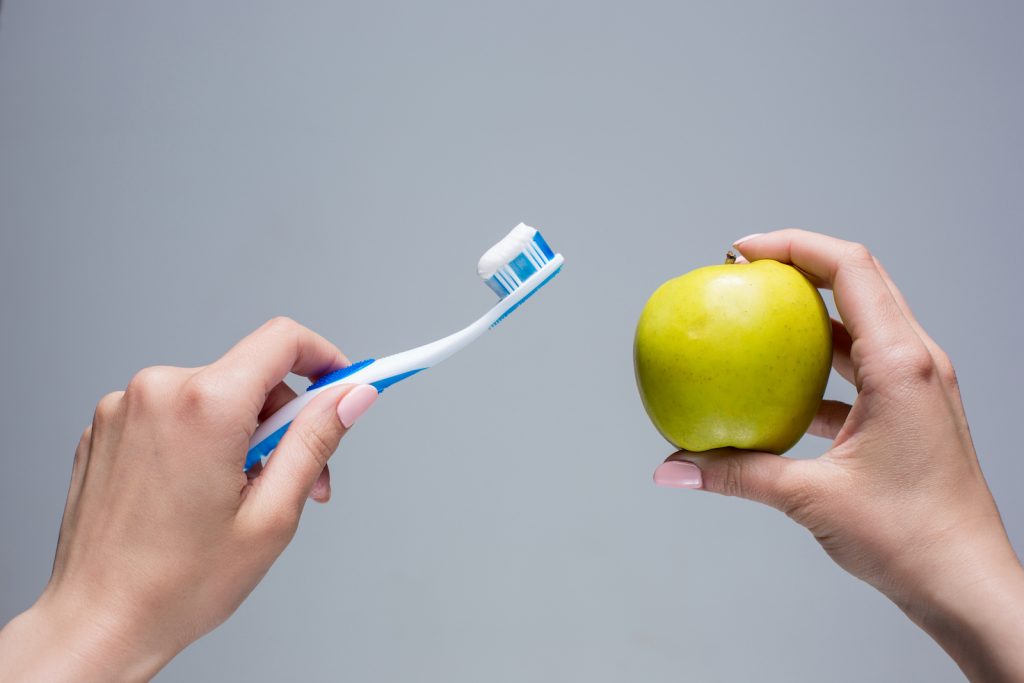
Diabetes and your Mouth – There is a Connection!
by Dr. Chelsea Mason
It is widely known that Type I and Type II Diabetes can harm and affect the eyes, nerves, limbs, heart and other important systems in the body. But did you know that having diabetes can also cause problems with your teeth, gums and jaw bone? Many people do not realize the negative effects of diabetes on the mouth if not properly controlled. The effects of diabetes on the mouth is not frequently discussed and needs to be brought to the forefront. Let’s learn more!
People with diabetes have a higher chance of being diagnosed with periodontal (gum) disease. Periodontal disease is a condition in which the gum and bone that hold the teeth in place is infected. Periodontal disease often leads to pain, abscessed teeth, bad breath, chewing difficulties, bone loss, shifting of the teeth and eventual tooth loss. Diabetics have a compromised immune system and typically heal at a slower rate than non-diabetics; therefore, diabetes can interfere with the successful treatment of periodontal disease.
People with periodontal disease will need to receive specialized treatment from their dentist or hygienist, who may do a deep cleaning of your teeth or refer you to a periodontist for treatment. Your dentist may also prescribe a mouth rinse, prescription strength fluoridated toothpaste and encourage the use of an electric toothbrush.
Other problems diabetes can cause are dry mouth and an oral fungal infection called thrush. Thrush causes painful white patches in your mouth and can last for days. Dry mouth happens when you do not have enough saliva—the fluid that keeps your mouth wet. Dry mouth can cause soreness, ulcers, infections, and tooth decay (cavities) because the mouth is much more acidic without sufficient saliva flow. For dry mouth, a doctor or dentist may prescribe a rinse or medicine to keep your mouth moist. Smoking makes these problems even worse.
To treat symptoms of thrush, your dentist may prescribe a rinse to kill the fungus that causes thrush. You may also need a special solution to clean dentures and partial dentures, if necessary. Thrush can easily re-infect the mouth if not properly treated and managed.
If your diabetes is not well-controlled and not well-managed with a healthy diet, exercise plan and proper medication, then you are more likely to develop dental problems. Furthermore, having gum disease may make your blood sugar harder to control. The mouth and the body are connected!
If you have diabetes, be sure to take time to see your dentist and dental hygienist regularly to check for any dental problems. Oftentimes, diabetics notice that their gums appear puffy and bleed when they brush and floss. Others notice dryness, soreness, white patches, or a bad taste in the mouth. All of these symptoms are reasons to visit your dentist regularly and follow up with your physician about the management of your diabetes.
Proper blood glucose control is key to controlling and preventing dental issues. People with poor blood glucose control get gum disease more often and more severely than people whose diabetes is well controlled. If you have diabetes, be sure to:
- Monitor and control your blood glucose levels
- Brush twice a day with an electric toothbrush.
- Floss daily.
- Consider using a waterpick to flush out hard to floss areas
- Visit your dentist for routine check-ups
- Tell your dentist if your dentures do not fit well, or if your gums are sore, bleeding and tender.
- Quit smoking. Smoking makes gum disease worse. Your physician or dentist can help you quit.

